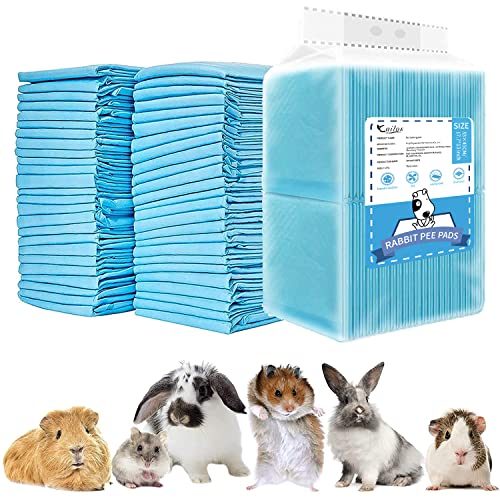Here's an article I transferred from a Rescue about spay, also applies to spay/neuter.
East Coast Rabbit Rescue
February 19 at 1:10 PM ·
Warning graphic image!
As you may recall approximately 63 rabbits and 177 guinea pigs were recently rescued from a hoarder. Our thanks to Dylan who learned about this terrible situation and set in motion the rescue. If these poor animals were forced to live in that hell for another week or so, many of them would have not survived.
As it was, many of the rescued rabbits and guinea pigs had severe medical conditions including mites, syphilis, abscess and cancer. One female rabbit had a huge lump around her nipples (see attached pictures). While we had hoped that the lump was an abscess, unfortunately the biopsy result came back and the lump was identified as a malignant tumor.
Mammary carcinoma in rabbits is often concurrently associated with uterine adenocarcinoma. This type of tumor is one of the most common forms of cancer in rabbits, occurring in up to 60% percent of female rabbits over 3-4 years old.
Unneutered male rabbits may develop testicular cancer as young as 2-3 years old.
As a rabbit lover, we want to emphasize the importance of spaying and neutering your rabbit. First and foremost, it will prevent pregnancy. Every single day thousands of unwanted rabbits are killed in shelters, and an untold number of rabbits are dumped on the street and eventually killed by cars or predators. This needless suffering could be easily reduced by spaying or neutering your pet. Secondarily, a spayed/neutered rabbit will generally live a longer and healthier life. The risk of cancer and urinary tract infections are greatly reduced. Third, a fixed rabbit will be calmer, easier to litter box train and their destructive habits will tend to diminish. In addition, spayed/neutered rabbits are easier to bond because they are calmer.
Despite the significant benefits of sterilizing your rabbit, some people have expressed their concerns about the expense and safety of the procedure. Nowadays, neutering/spaying rabbits has become a safe procedure IF performed by veterinarian who has experience with rabbits. Of course there is a small risk to surgery, but generally speaking the mortality risk due to anesthesia runs around 1%. Thus the best thing to do is contact a rabbit rescue to get referrals concerning qualified/low cost Vets to use. By using such Vets the procedure will be safer and generally much less expensive.
In conclusion, we highly recommend spaying and neutering your rabbit. Intuitively doing the right thing initially will make your rabbit experience a better one. It will also save you money in the long run and it will ultimately prolong the health and life of your pet.














































































